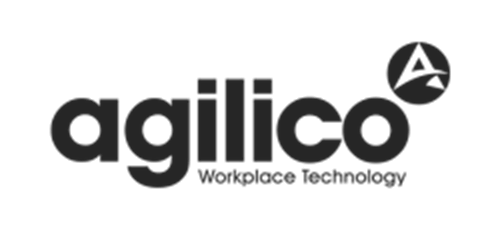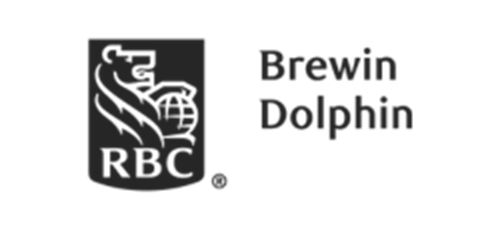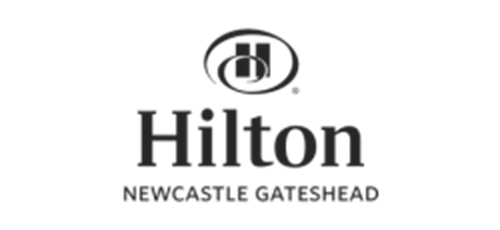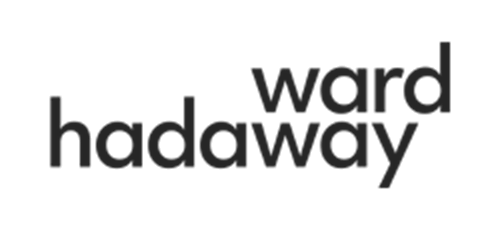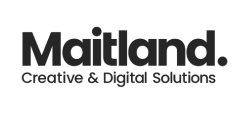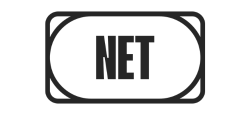Friday, 8th March 2019 marks International Women's Day, a day to celebrate women's achievements while simultaneously calling for a gender-balanced world. On this day, we're shining a light on Elaine Warburton, co-founder of QuantuMDx, and cover of our Spring/Summer 2019 member magazine.
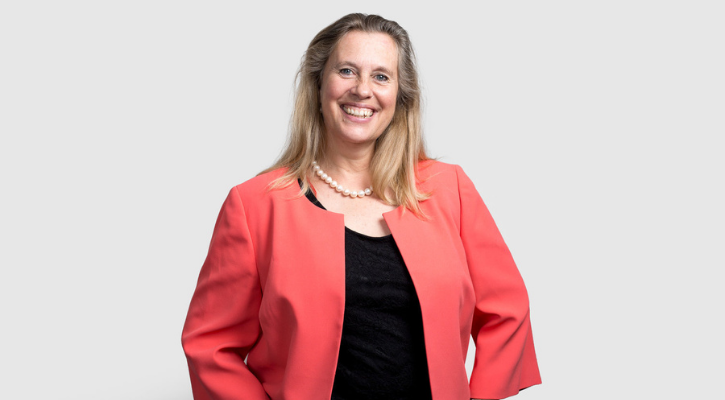
On reflection, it may seem that Elaine Warburton was destined to go into healthcare. Her great-uncle was Lord William Beveridge, the architect of the NHS and her mother Penny was a budding biologist who obtained her degree in biology, whilst working in the City, when Elaine was a teenager.
From her mother, Elaine developed a love for science from a young age. Rather than succumb to the more ‘traditional’ role of cooking, knitting and sewing, Elaine remembers fondly the experiments she and her mother carried out in the kitchen, and the joys of opening large cardboard boxes brimming with tutorials, laboratory equipment and a plethora of chemicals and reagents.
It’s clear from listening to Elaine’s early memories of homelife, that her mother was a source of inspiration and admiration and that, unfortunately, it was her mother’s long battle with breast cancer which ignited Elaine’s passion for personalised, rapid healthcare.
“There was always a burning passion within me that I had to do something to stop other people going through what I did. If we can catch cancer early, we can absolutely do something about it.”
Inspired by British veterinarian James Herriot, Elaine’s childhood dream was to become a vet, but when she didn’t get the A-level grades she needed, Elaine looked to her mother for advice. On her mother’s suggestion, Elaine headed to Liverpool University to study for a degree which combined her passion for genetics while simultaneously preparing her for a career in nursing. Admittedly, the excitement of studying towards her genetics and nursing degree was fuelled by the rise of the HIV virus which had just been identified in the 1980s.
“The outbreak of AIDS was scary but if we could find the genetics of how it worked then we could do something about it. It was an exciting time, and I feel most privileged to have been there at the advent of genetics.”
The period also marked a significant change in the public healthcare sector where increasing financial constraints started to shackle the NHS. Deciding to “innovate within”, Elaine joined KPMG and trained as a chartered accountant later moving to their healthcare consultancy practice where she was tasked with reconfiguring hospitals into Trusts.
Elaine’s entrepreneurial spirit was ignited in 1995 when she met Victor Last, ex RAF, and they launched her first start-up business, Spring Medical. They took the successful military model for musculo-skeletal and spinal rehabilitation where injured servicemen were rehabilitated back to the front line, under an exercise based regime, and adapted it for civilians. The model has now been absorbed into the NHS.
However, Elaine learnt the first two of many start-up lessons – be prepared for the unknown and you can never have enough cash. The hospital Spring Medical was working from went under overnight and a fire-sale of the business took place.
Elaine went back to consultancy and commissioned the first PFI to come in on time and in budget. She was then headhunted to join The London Clinic in Harley Street, one of Europe’s most prestigious and largest private hospitals and a specialist hospital for complex surgery and cancer-care. While working there, Elaine was tasked with researching the future of healthcare to prepare the hospital for twenty-first century medical advances.
“We focused on what the delivery of healthcare within a hospital environment would look like in 2030 and beyond. I quickly realised that diagnostics, particularly DNA-based diagnostics, was going to be the future. With the rise of mobile technology in medicine, my research showed a likely decline in the use of hospitals and an increase in home treatments.”
Not long after, and perhaps by a stroke of luck, Elaine met Jonathan “Jono” O’Halloran, a former Harvard student, whose vision for molecular diagnostics inspired the duo to launch Opaldia in 2005, a start-up which combined new genetic testing with cancer screening programmes, and the aim of diagnosing and treating cancer in its earliest stages, or preventing it with prophylactic surgery for carriers of cancer mutations such as BRCA (breast/ovarian cancer).
“The screening was exclusive; each test cost approximately £3,000-£5,000. It wasn’t available on the NHS, so only those with private health insurance or the means to self-pay could afford to be tested. This went against our principles of healthcare for all.”
The cost, combined with the frustrating six-month wait for screening results, led Elaine and Jono to consider a new route. She recounts the conversation that led to the development of QuantuMDx firmly:
“I jokingly said to Jono one day ‘invent me something that could read a test in 10-15 minutes and that I could put in the palm of a health professional’s hand’”. Jono had already been thinking along the same lines and so together with her husband Julian, Elaine’s third start-up was launched.
QuantuMDx was incorporated in March 2008, with Jono setting up a biotech lab in his Sussex based garage, using equipment bought on eBay. With no money to further develop the heart of the company – the QuantuMDx Point of Care (known as Q-POC™) – Elaine sought investment, eventually securing £3 million worth of funding from South Africa’s Science and Technology Agency.
Jono built his second lab, appointed a crack R&D team and they moved the business to South Africa until issues connected with the country’s politics forced them to leave. On a recommendation from Professor Sir John Burn, now Chair of the Newcastle Hospitals NHS Foundation, Elaine moved QuantuMDx’s operations to Newcastle’s International Centre for Life in 2011 and raised further capital supplemented by UK and EU grants.
Now headquartered on Melbourne Street overlooking Newcastle’s Quayside - and with subsidiary operations in the United States and Singapore - the company boasts a diverse team of approximately ninety staff including sixty researchers and engineers. QuantuMDx has won over 10 awards since its inception including the Medilink UK Award for Excellence in Innovation. Elaine also received an OBE for services to innovation in healthcare in 2013.
Through Elaine’s efforts, the company has secured over £50 million worth of funding for Q-POC™ development. Only slightly bigger than an iPad, the highly innovative Q-POC™ can diagnose disease within minutes at the patient’s side. Its simplicity of use and low cost means that anyone, anywhere in the world can be accurately diagnosed with ‘Gold Standard’ laboratory accuracy.
With the admirable mission to “make the world a better place”, it wasn’t long until QuantuMDx and the Q-POC™ caught the attention of Microsoft mogul Bill Gates, albeit in a somewhat challenging personal time for Elaine. In 2015, Elaine was diagnosed with breast cancer, and had to undergo a double mastectomy. Knowing she was a BRCA carrier she followed Opaldia’s mission and had prophylactic surgery for removal of her ovaries and fallopian tubes.
Elaine recounts, “Instant menopause condensed into a year whilst running a company, endless fund raising and getting over the trauma of three lots of major surgery and treatment, with barely a day off, was exhausting. My husband Julian was simultaneously diagnosed with prostate cancer which, for me, was more traumatic than anything I was physically going through. However, both my family and extended Quantumite family were hugely supportive, which helped enormously.”
Just as she was about to go into hospital, Elaine got a call from Bill Gates and his team saying that he’d like to see the technology the following week. “So, high as a kite whilst dosed up with morphine, I joined Jono and Julian and we pitched QuantuMDx to Bill and his medical team. He seemed to like it because he started investing in us through both his Global Good Fund and Bill and Melinda Gates Foundation.
However, he gave us one proviso that we get our cassette cost of goods to below $5 to enable his vision for mass global uptake of diagnostics – a huge challenge as our cassette costs were then running at nearer $30. So we went back to the design drawing board and I went cap in hand to my seventy odd shareholders and proposed going back into research mode for another 2-3 years to achieve this challenging goal.”
After several rounds of prototyping and end user engagement, the Q-POC™ is now undergoing its first field studies in Peru, South Africa and the UK, with India as a potential fourth field study. Elaine hopes the Q-POC™ will become a staple to the NHS, but is realistic about its timeline, expecting it to reach the UK public no sooner than 2023.
With 2019 shaping up to be a watershed year for QuantuMDx, Elaine has ambitious plans for the company which was recently chosen by the Wall Street Journal to feature at the 2018 World Economic Forum. Although QuantuMDx is on the road map for an IPO and she envisages it may well be sold through a trade sale in the next five years, Elaine wants to firmly cement QuantuMDx and R&D in the North East.
“I want Newcastle and the North East to benefit from all that we’ve done. They’ve supported us, so if we did go down the trade sale route, we’d like to find someone who can keep the footprint of QuantuMDx in the region. We want to put Newcastle well and truly on the biotech map.”

